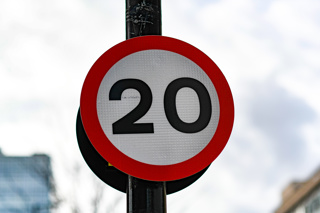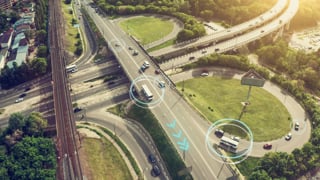Vehicle manufacturers are being urged to consider fitting autonomous emergency braking as standard in a bid to improve safety ratings and potentially cut insurance premiums.
Matthew Avery, head of research at Thatcham, told delegates at the recent Lyons Davidson International whiplash conference that engineering holds the key through the continued introduction of advanced driver assistance systems (ADAS) to prevent and mitigate accidents.
While a wide range of ADAS systems are already providing many drivers with an additional level of safety, Thatcham believes it is autonomous emergency braking (AEB) systems in particular that are integral in preventing whiplash injuries.
Avery pointed to real-world international claims data demonstrating a claims frequency reduction of both personal injury and accident damage of more than 25% in a year-long study based on Volvo’s AEB system ‘City Safety’.
City Safety is fitted as standard to the Volvo XC60, S60 and V60, while many other car manufacturers offer similar technology as options. It is available on mainstream vehicles such as the Ford Focus and the Volkswagen Up.
AEB is a £250 option on the Up, while on other vehicles, a safety package including AEB could typically cost around £750.
However, fleets might be able to negotiate reductions if ordering vehicles in bulk.
Other international studies reveal a similar trend for crash reduction associated with AEB fitment and dependent upon the functionality of individual systems.
A report from the House of Commons Transport Select Committee in January also urged the insurance industry to stop activity that has been responsible for driving up premiums.
Louise Ellman MP said when launching the report: “Insurers, solicitors and claims management companies have themselves driven up the cost of premiums by encouraging people caught up in road accidents they did not cause to claim for personal injury, car hire, and other legal costs.
“Although we strongly support access to justice, drivers should not be railroaded by cold callers into launching legal action.
“The insurance industry must abandon sharp practices that push up premiums such as passing drivers’ personal data to other parties or taking secretive referral fees from solicitors, garages and car hire firms.”
The report suggests that about 70% of personal injury claims are a result of whiplash injury.
Vehicle safety experts at Thatcham Research believe AEB technologies are fundamental in reducing crashes and consequently whiplash claims, and are working on a number of initiatives with both insurers and vehicle manufacturers.
These include the development of AEB testing protocols to measure system performance both for car–to–car and car–to–pedestrian impact scenarios; Thatcham is proposing these test procedures to Euro NCAP, the European vehicle safety organisation, for consideration on potential inclusion within its vehicle safety ratings by 2014.
Euro NCAP has tightened requirements for maximum five-star ratings in recent years, most recently introducing a requirement for electronic stability control being standard across most of a vehicle’s range to achieve the maximum score.
Avery also revealed that a proposal for AEB to be recognised within the group rating system is currently being considered, which has the potential to reduce insurance premiums with standard fitment of such systems.
“The effectiveness of AEB systems as primary vehicle safety technologies in preventing accidents from occurring in the first place is the key to reducing both personal injury and accident damage claims,” he said.
“As we see more and more manufacturers beginning to offer effective crash prevention systems on a range of mainstream, volume selling vehicles, we should begin to see a reduction in claims, which can only be good news for insurers and motorists.”



















rosco7 - 28/05/2012 14:08
ADAS is an excellent safety system, and I can't wait for this to be as standard as ABS is now. But in user chooser lists it is always difficult to insist on such options where they have a P11D Value increase as these do. Thatcham could get better results by lobbying government to remove safety devices from the P11D calculations. Drivers always challenge anything that will increase their tax with little percieved benefit to them as an individual.